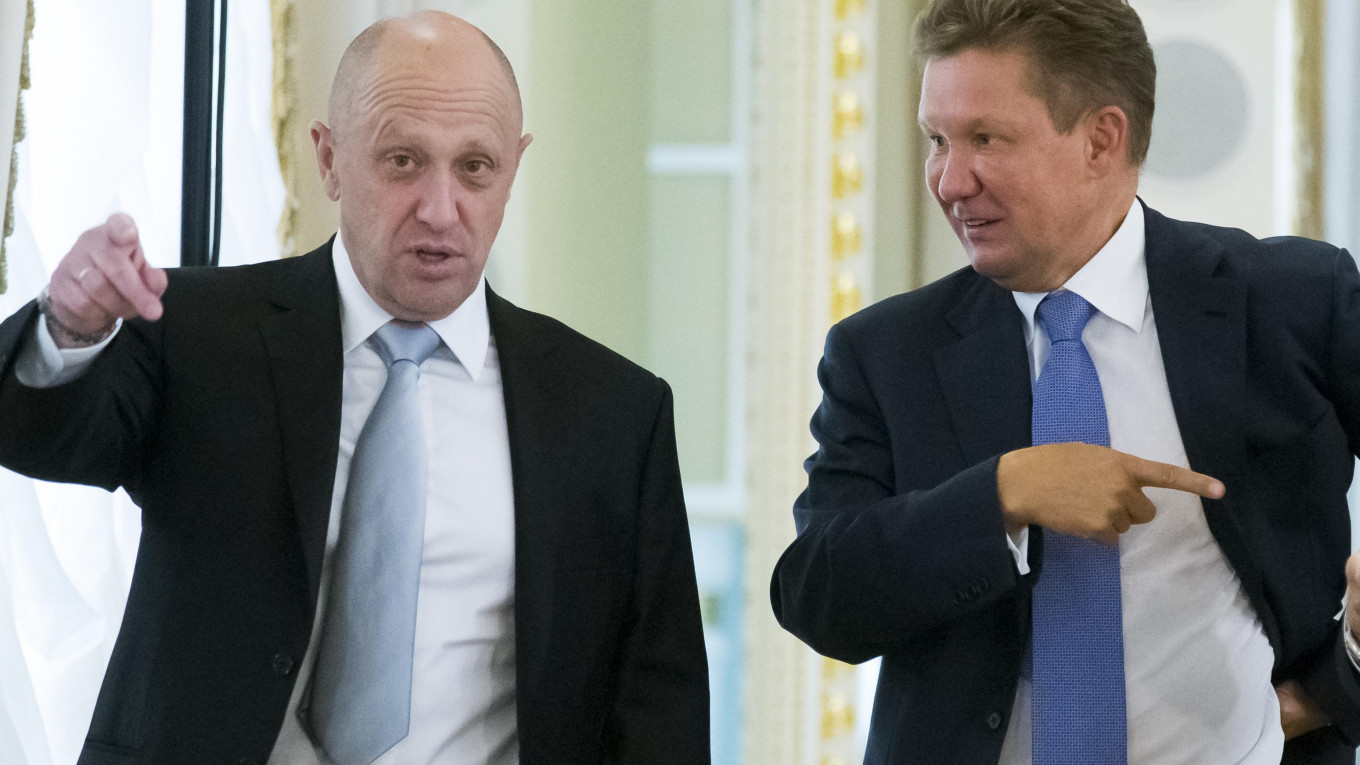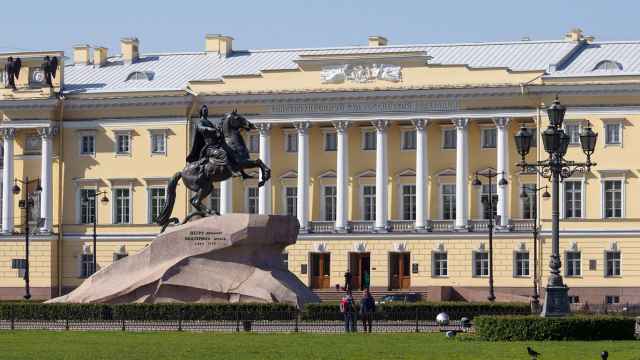Alexei Navalny’s Anti-Corruption Foundation (ACF) published its latest investigative work on Friday, revealing what it says is a cartel of businesses owned by Yevgeny Prigozhin and contracted by the Defense Ministry. Widely known as “Vladimir Putin’s favorite chef,” Prigozhin is a billionaire restaurateur with a history of catering to St. Petersburg’s elites and winning lucrative federal procurement deals. According to ACF, his cartel has won more than 23 billion rubles ($405 million) in defense contracts.
Navalny says his group was able to uncover Prigozhin’s massive resources using published data about federal procurement orders.
According to ACF, Prigozhin’s businesses have made bids on 23 different procurement orders, winning more than 23 billion rubles from the Defense Ministry to provide housing and communal services in military towns. Only one of Prigozhin’s companies, “Megaline,” existed before bidding on these contracts started. The rest were created “on the go,” as the bids were submitted.
ACF says it was able to identify other companies under Prigozhin’s control by finding strange coincidences in their paperwork. For example, the companies “Ekobalt” and “Komponent” were registered in neighboring offices. Another four companies ACF says belong to Prigozhin were granted their operating licenses by the Emergencies Ministry on the same day, and their registration numbers follow in perfect sequence.
Surprise help from the federal government
Navalny’s team was also able to learn more about these companies thanks to an investigation by Russia’s Federal Antimonopoly Service launched last August, which revealed bank accounts belonging to Megaline. These records show loan agreements with dozens of other companies owned by Prigozhin, ACF says.
According to the Anti-Corruption Foundation, the loan agreements were used to run what amounts to a pyramid scheme, wherein one company would win a contract and then transfer its funds to the next business, which then used it as collateral to win another procurement deal.
The investigation by the Antimonopoly Service also revealed that the companies filed with the government’s online platform from an IP address registered to a company called “Concord Management and Consulting,” which happens to belong to Violetta Prigozhin, Yevgeny’s mother.
All the companies also used email addresses registered on the same domain — the same one used by a Prigozhin-owned business called “Medstroi,” and the companies’ listed contact information coincides with the telephone numbers for “Kombinat Pitaniya Concord,” yet another Prigozhin business, ACF says.
The most curious discoveries
The different companies also submitted nearly identically formatted bids for the same procurement contracts, sometimes changing only their introductions and fonts.
Some of the people ostensibly leading the companies that supposedly make up Prigozhin’s cartel are also problematic, like Vitaly Filippenko, the sole owner and director of “Ruskomplex,” who is currently in pre-trial detention on suspicion of large-scale fraud, according to ACF. Despite Filippenko’s incarceration, Ruskomplex has won 99.5 million rubles ($1.6 million) in state procurement deals.
Navalny’s researcher also discovered that the company “Spetsresurs” has only an armchair and a table listed as its registered capital, despite winning 3.4 billion rubles ($60 million) in government contracts.
ACF says its report concerns just one of Prigozhin’s cartels. According to Navalny, the billionaire operates several similar schemes that have won a total of 180 billion rubles ($3.2 billion) in Russian defense contracts, including multiple no-bid procurement deals.
A Message from The Moscow Times:
Dear readers,
We are facing unprecedented challenges. Russia's Prosecutor General's Office has designated The Moscow Times as an "undesirable" organization, criminalizing our work and putting our staff at risk of prosecution. This follows our earlier unjust labeling as a "foreign agent."
These actions are direct attempts to silence independent journalism in Russia. The authorities claim our work "discredits the decisions of the Russian leadership." We see things differently: we strive to provide accurate, unbiased reporting on Russia.
We, the journalists of The Moscow Times, refuse to be silenced. But to continue our work, we need your help.
Your support, no matter how small, makes a world of difference. If you can, please support us monthly starting from just $2. It's quick to set up, and every contribution makes a significant impact.
By supporting The Moscow Times, you're defending open, independent journalism in the face of repression. Thank you for standing with us.
Remind me later.






